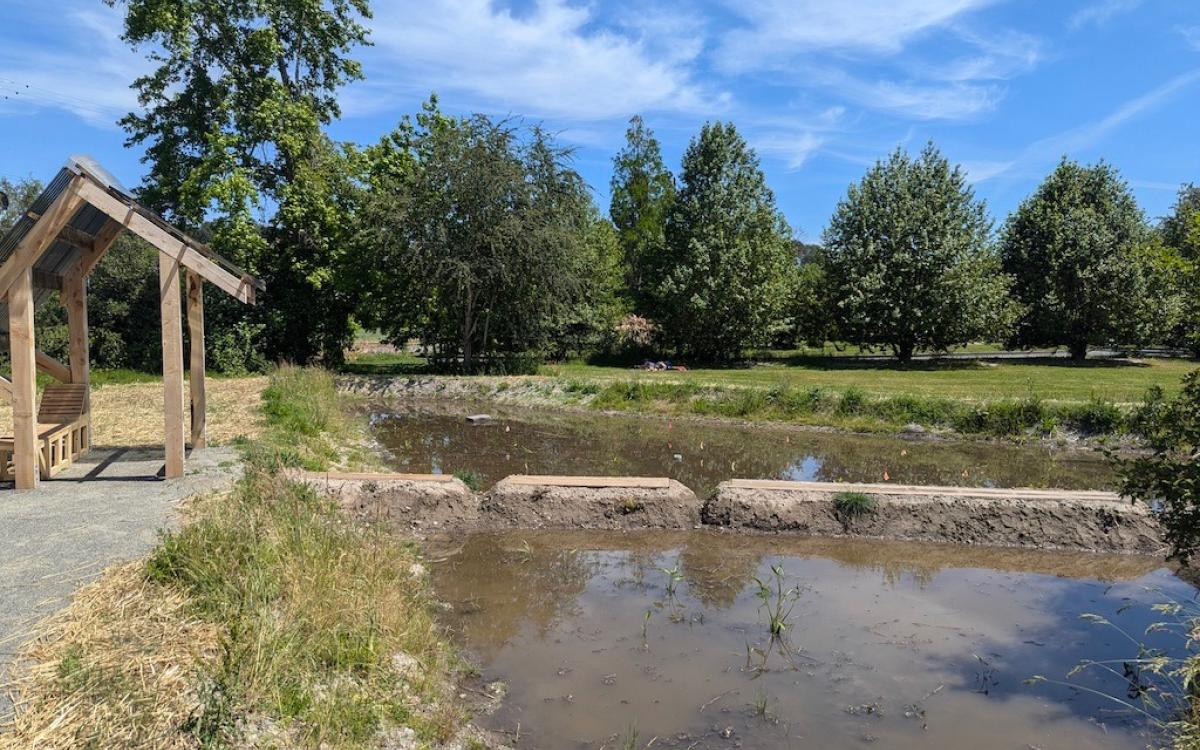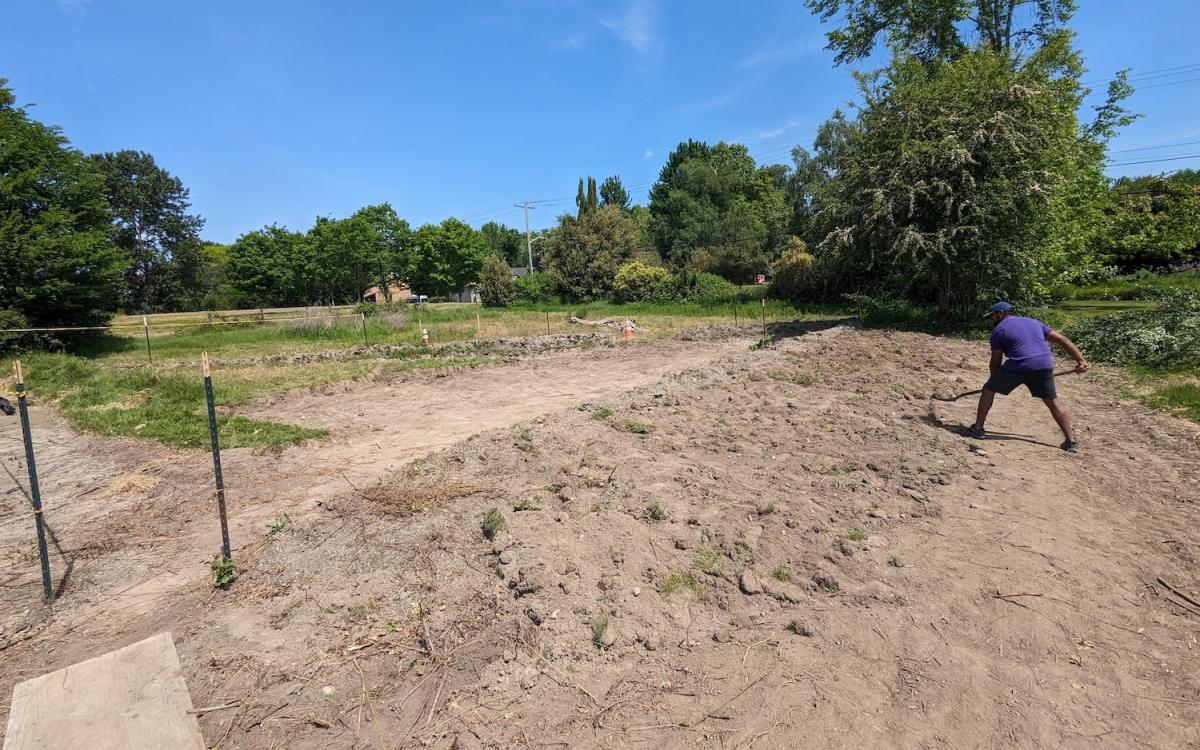At a glance
This project aims to increase the UW Farm's food production and increase the diversity of the Farm's produce. The UW Farm's… Read full summary
- Funding received
- 2022-2023
- Mini
- Awarded
- $5,000
- Funding partners
-
- Services and Activities Fee (SAF)
This project aims to increase the UW Farm's food production and increase the diversity of the Farm's produce. The UW Farm's mission is to provide sustainable, local food and an educational space to the University of Washington and the wider community. As a new growing space on the Farm, a pond will allow for a significant increase in the cultivation of wapato and other plants that are relevant to indigenous cultures. Unlike the Native Garden's mounds and the UW Farm's rows, the pond will also provide an entirely new type of growing space for the Farm. As climate change causes Seattle's weather to be increasingly unpredictable, a diversity of crops and farming methods will help to ensure that the UW Farm is resilient in the face of future challenges.
Through collaboration with the UW Solar RSO (Registered Student Organization) and the wǝɫǝbʔaltxw Intellectual House, I intend to combine my experience on the UW Farm as part-time staff and within the College of Built Environments as a landscape architecture graduate student to design and build an agricultural pond on the UW Center for Urban Horticulture (CUH) Farm site. The pond will fulfill a request from Lisaaksiichaa Braine, past Director of the Wǝɫǝbʔaltxw Intellectual House, who envisioned greater access to native food for food insecure First Nations students on campus. The project will be sited on the eastern side of the farm. A greenhouse dubbed the Resiliency Tunnel, which is under development by UW Solar, will be sited directly north of the pond and capture rainwater that will be used to irrigate the pond through Seattle's summer months. Water overflow from this pond will pass through a swale to irrigate a fruit orchard downslope, which is under development.The pond will contain a culturally relevant resource in wapato (Sagittaria latifolia), an aquatic plant with tuberous roots that were an important source of carbohydrates before the introduction of the potato to the Pacific Northwest. Wapato is already cultivated by the Wǝɫǝbʔaltxw Native Garden on the Farm, within two galvanized stock tanks. Wǝɫǝbʔaltxw uses these stock tanks as a nursery, with the intent of moving these plants to a more permanent growing space in the future. Moving the cultivation of wapato to this pond would create more public interest in the crop, increase biodiversity on the Farm, and create a more meaningful connection between the First Nations students and a deeply significant crop. I intend to construct the pond I have designed this quarter (Spring 2023). I am focusing on this project as an independent studio topic within the Department of Landscape Architecture and am in close collaboration with Perry Acworth, who is my boss at the UW Farm, and Carrie Cone, the Administrative Services Manager at UW Botanic Gardens. I have received $3,500 in funding from the Northwest Horticultural Society for this project and am in communication with UW Solar's Resiliency Tunnel team to also repurpose their remaining CSF feasibility study funding. I have a detailed budget of the project, and a $5000 mini-grant would cover89% of the expected costs that are unmet. This project will not be possible without a CSF mini-grant. Thank you for your consideration!
Kove Janeski
Project lead
- kjaneski@uw.edu
- Affiliation
- Student
Perry Acworth
Team member
- persis@uw.edu
- Affiliation
- Staff

